Skip to content

Transcription Guidelines
 Transcribe
Transcribe
Transcribe
Always divide the sentences based on who’s speaking
Do
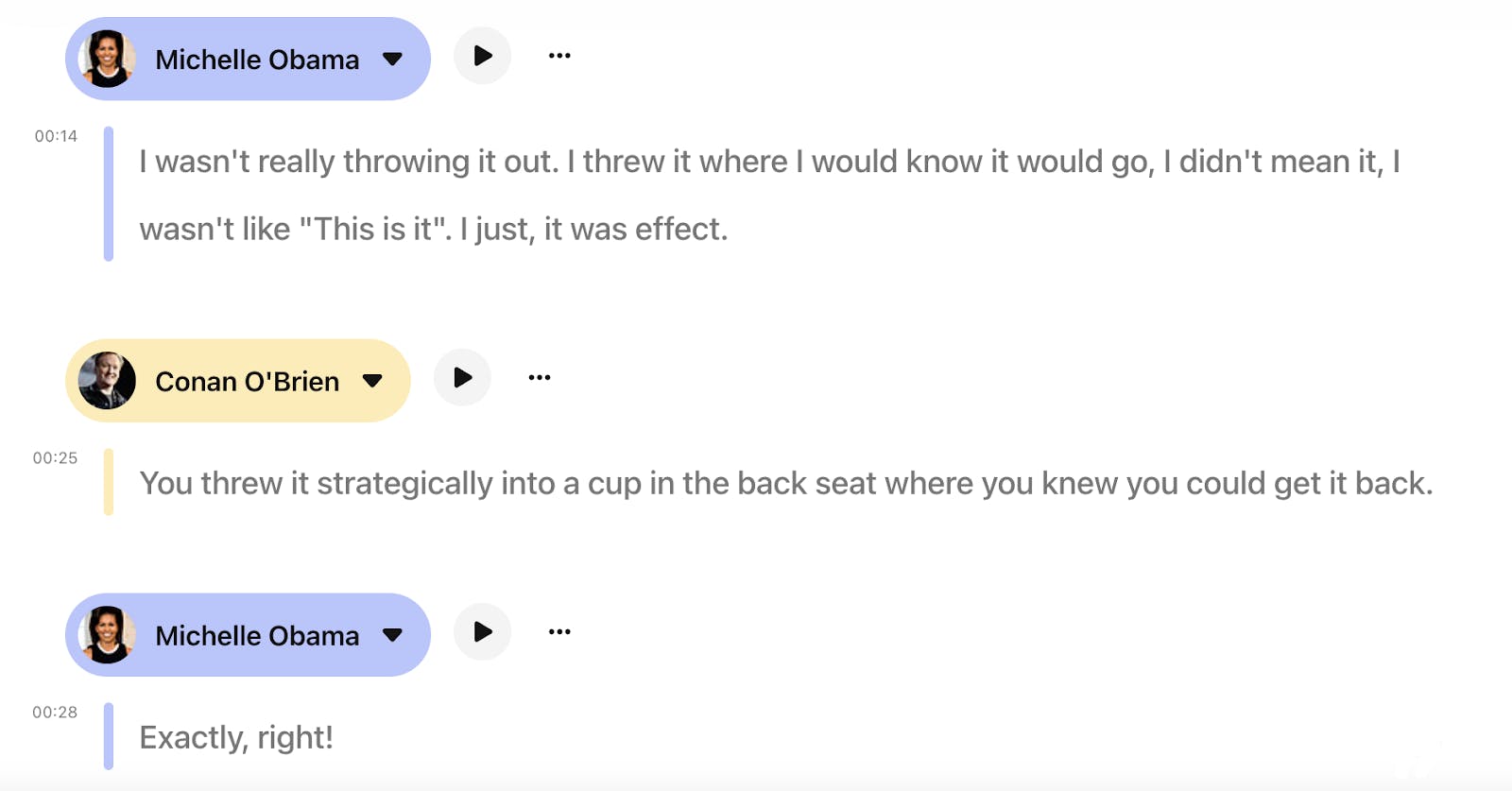
Don't
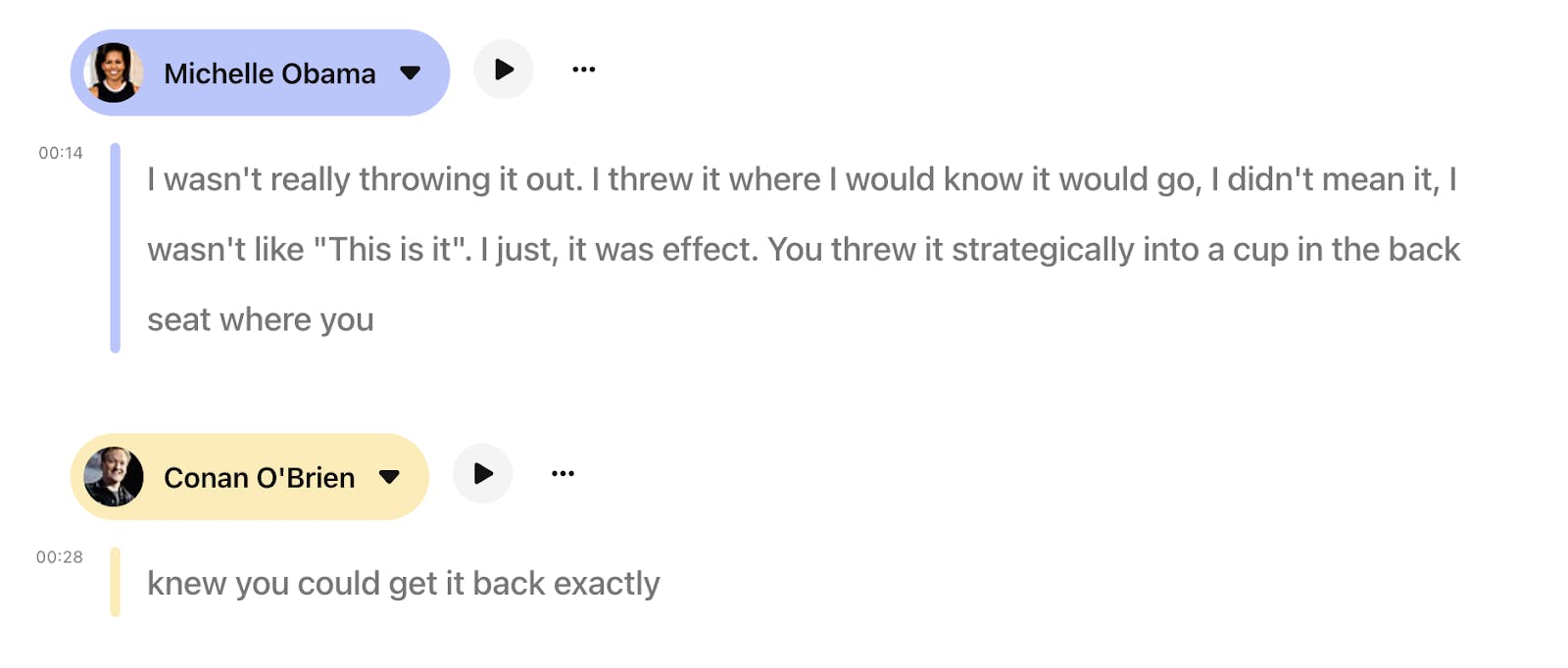
Add punctuation
Do
Don't
Separate long speeches into more than one paragraph
Do
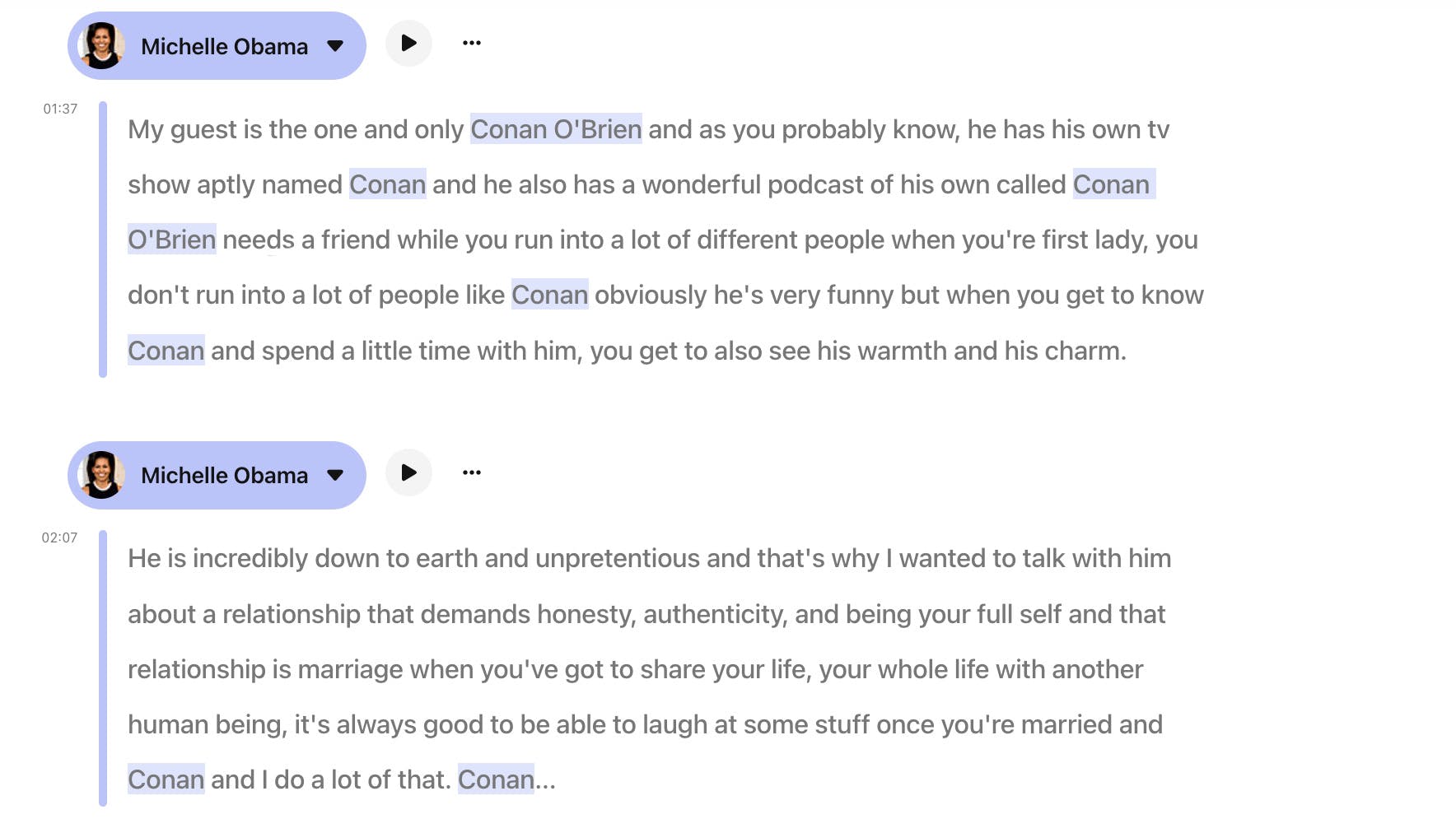
Don't
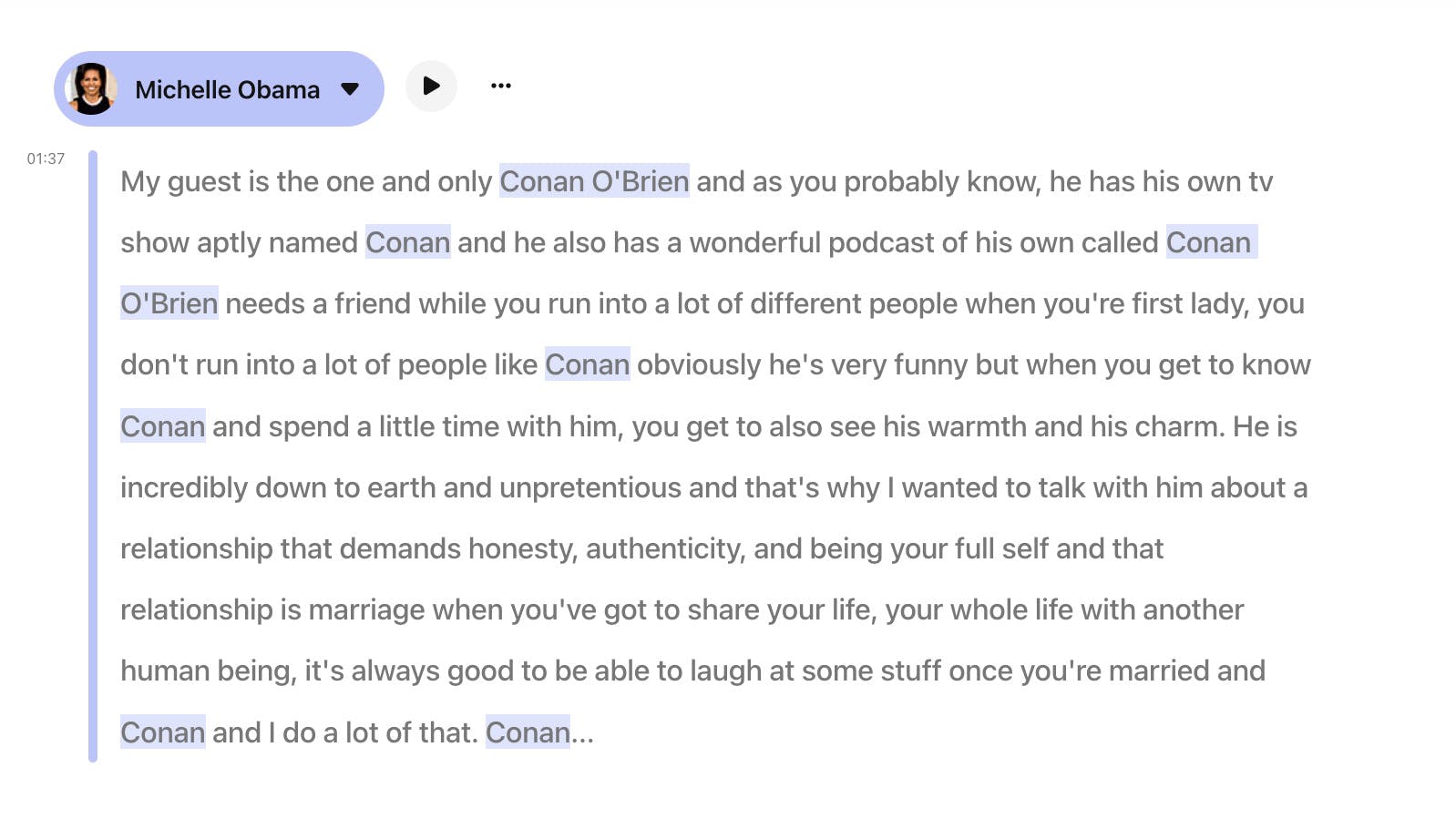
Use a single dash to indicate an unfinished sentence or word, but also to notice a censored word
Do
Don't
Do
Don't
Transcribe music lyrics, but not too many!
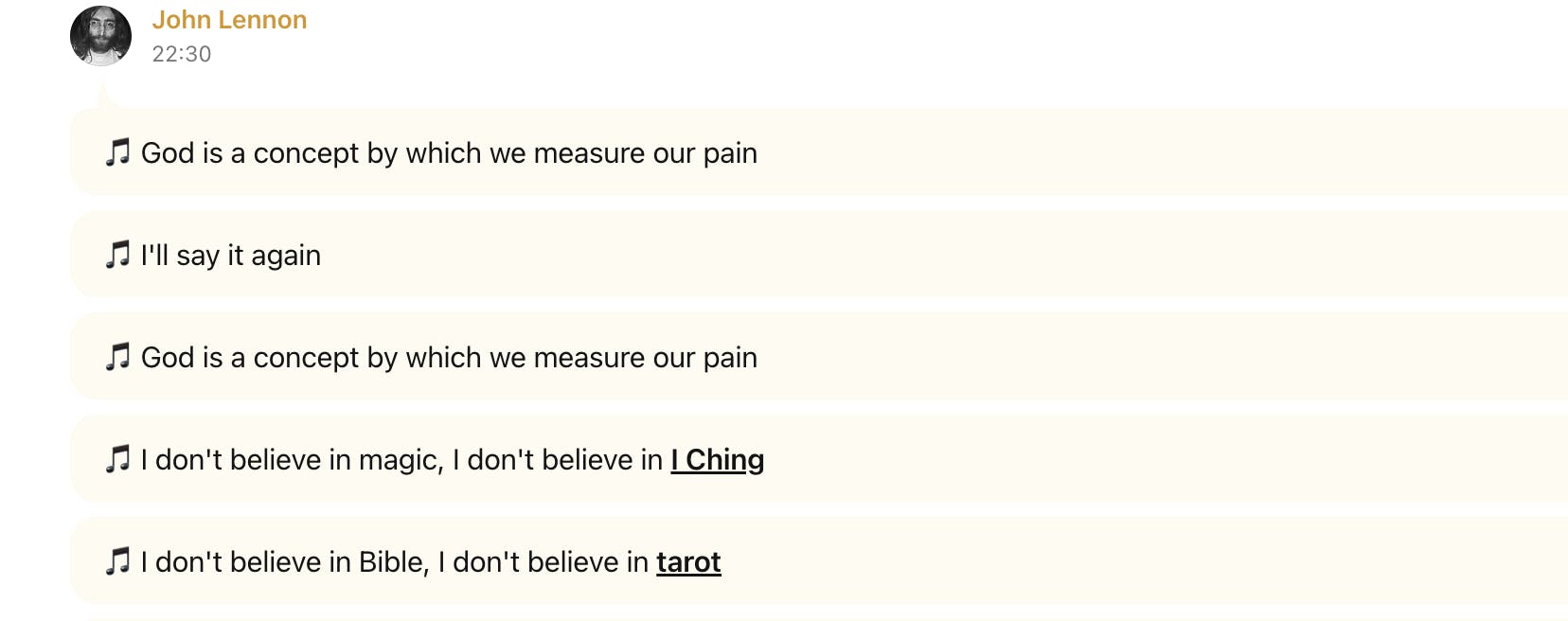
Do
Don't
Don’t describe. Transcribe!
Do
Don't
Do
Don't
Remove laughter, filler sounds, and repetitions
Do
Don't
Delete all transcribed repetitions
Do
Don't
Don’t transcribe advertisement
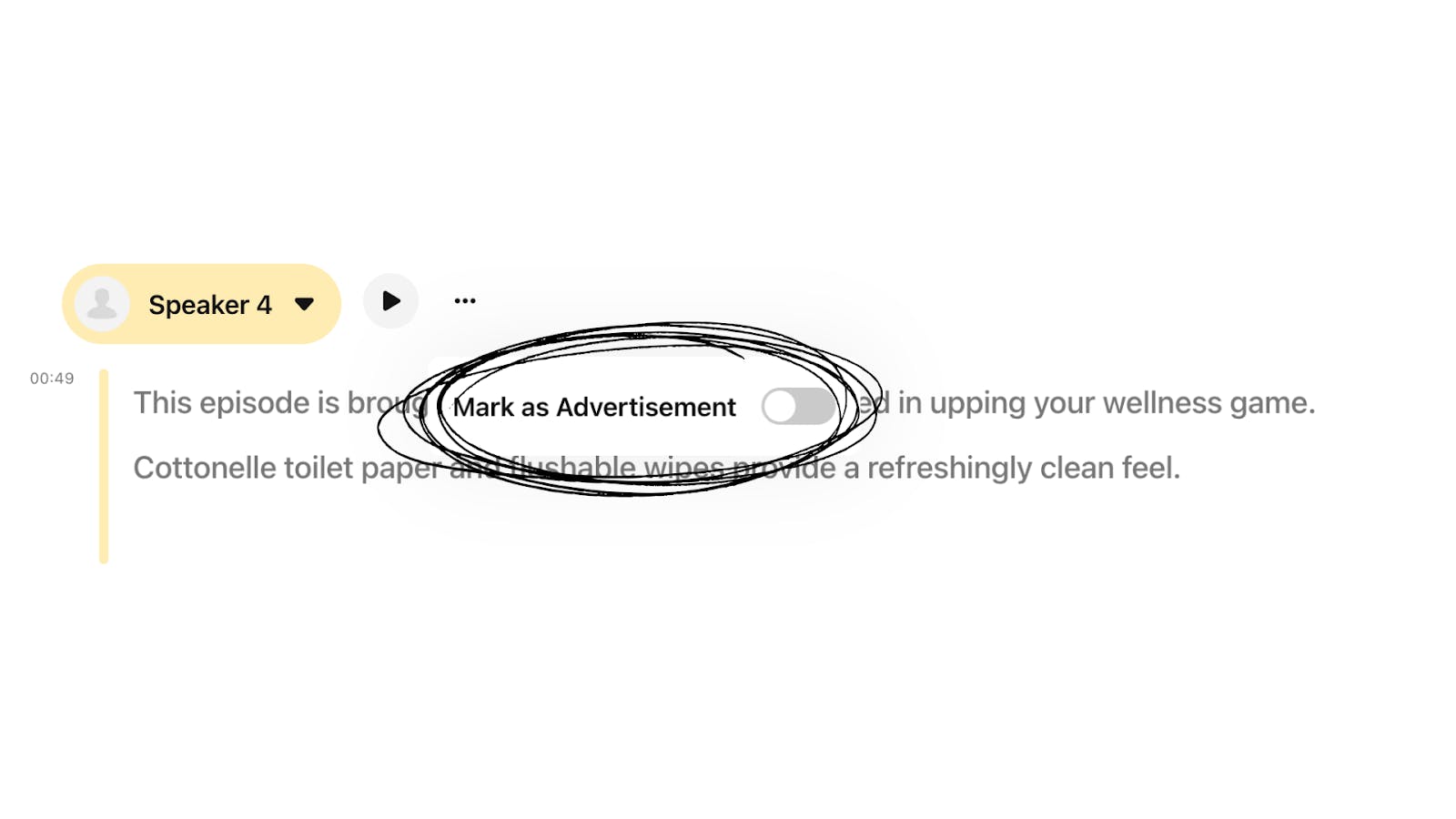
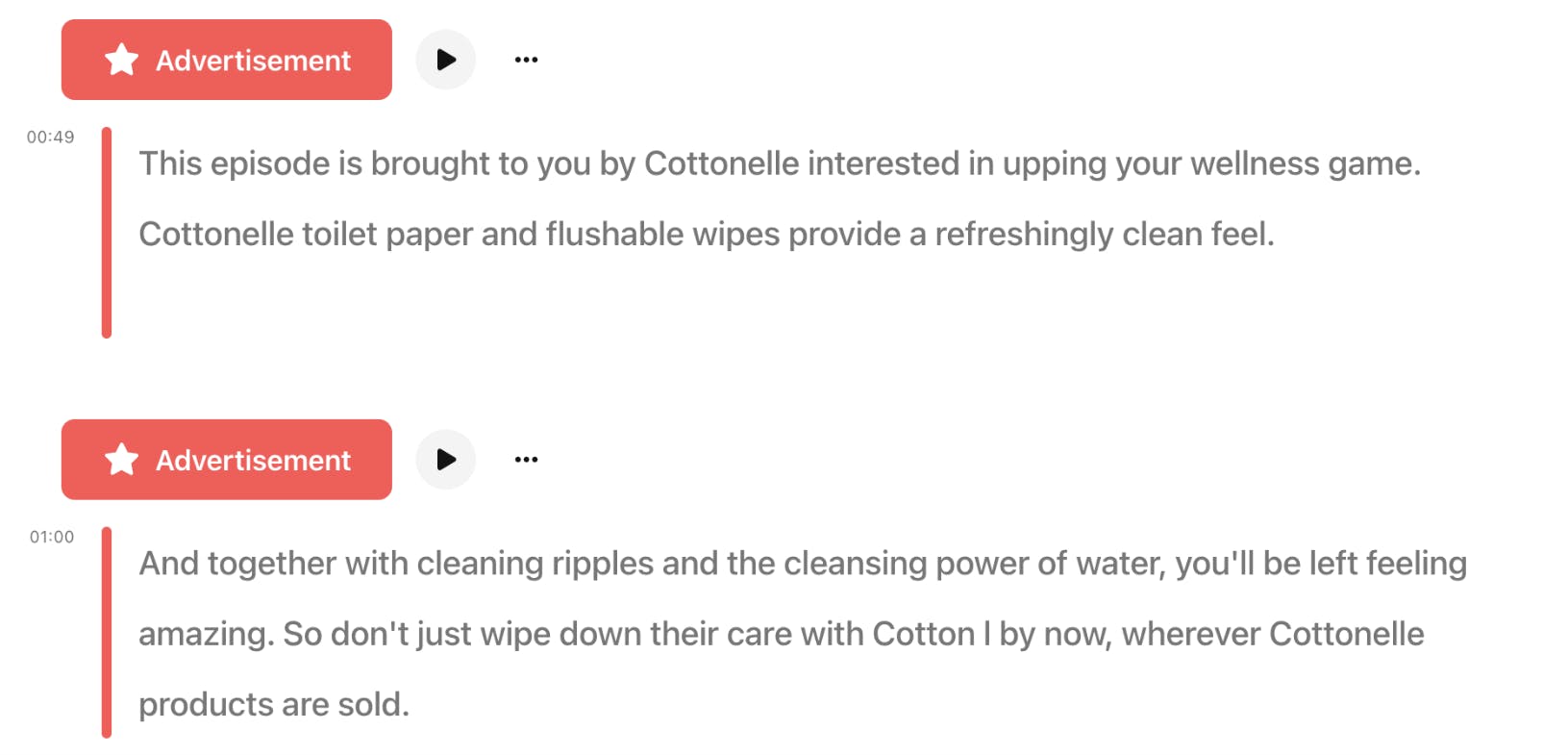
What is to be marked as advertisement (Ads)?
Should you transcribe credits?
Want to print your doc?
This is not the way.
This is not the way.

Try clicking the ⋯ next to your doc name or using a keyboard shortcut (
CtrlP
) instead.